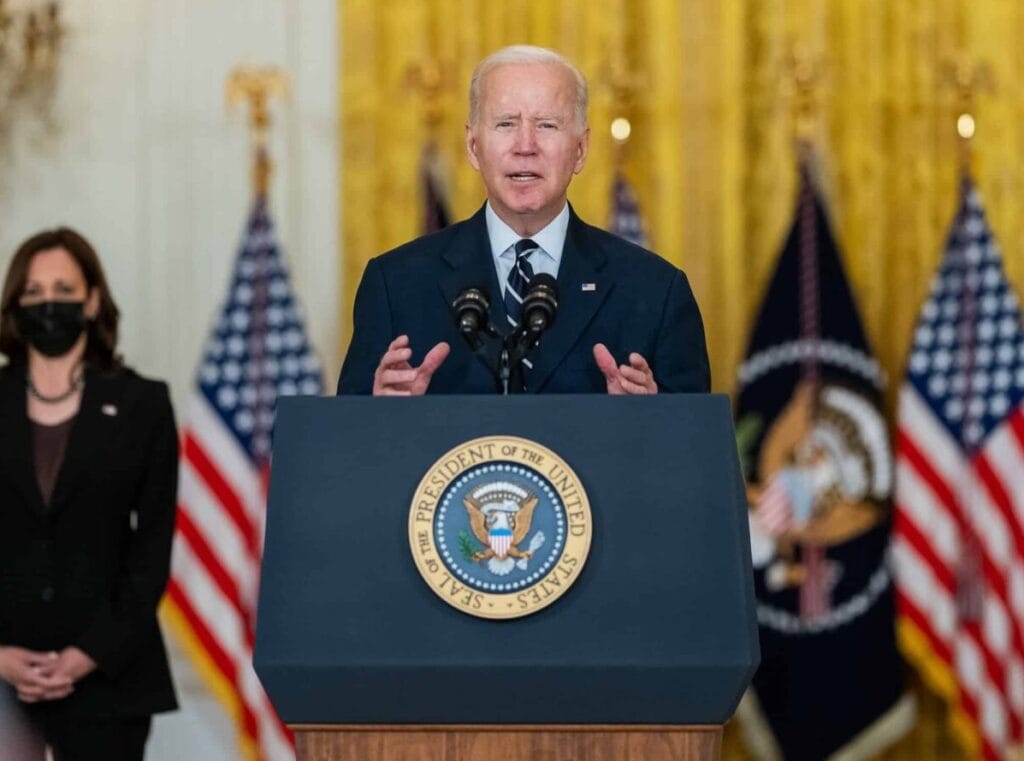Made In America Summit, Democrat Senators Ask for Review of AI, Mayors Permitting Bill
Tuesday’s Made-in-America Summit will be headlined by reactions to BEAD allocations.
Teralyn Whipple

June 26, 2023 – Reactions to Monday’s funding allocation announcement from the Broadband Equity, Access and Deployment program will headline Broadband Breakfast’s Made in America Summit on Tuesday, starting at 8:30 a.m. at the Samsung Executive Center on Capitol Hill.
State broadband officers from Virginia, Kansas and New Mexico will take the stage at the Made in America Summit and react to the funding allocations received, which are being announced by the Joe Biden administration Monday.
The National Telecommunications and Information Administration had set a deadline by June 30 to announce the state allocations, which are expected to drive broadband infrastructure deep into states and help fulfill a goal of universal connectivity to the entire nation.
“The Made in America Summit is an effort to explain and examine the connections between the three pillars of the administration’s $2 trillion Made in America agenda: The Infrastructure Investment and Jobs Act, the CHIPS and Science Act, and the green energy provisions of the Inflation Reduction Act,” said Drew Clark, CEO of Breakfast Media LLC.
Sessions throughout the day will explore these vital big-picture topics:
● Building Better Broadband throughout the United States
● (Re)-building Energy Infrastructure
● Semiconductor Manufacturing and U.S.-China Tech Race
● Challenges to Reorienting America’s Supply Chain
● Making Cleaner Energy and Enhancing Green Industry
Registration is available from the Made in America Summit for $249; press may attend free of charge. Registration includes Continental Breakfast and Made in America Lunch.
Senators want AI accountability
Senators Ed Markey, D-Mass., and Gary Peters, D-Mich., asked the Government Accountability Office in a letter sent Friday to review the potential harms of generative artificial intelligence.
The letter requested that the GAO conduct a “detailed technology assessment” on the risks of generative AI tools and how to mitigate them.
“It has already become apparent that generative AI is a double-edged sword, carrying with it a broad range of serious harms,” read the letter, citing AI-generated porn, enhanced scamming techniques and harmful disinformation.
“These current and potential future harms require urgent study. We ask GAO to assess this list of questions about harms from generative AI and potential strategies for mitigation,” the letter said.
The letter follows a series of AI hearings in Congress, including a Senate Judiciary subcommittee in May with the CEO of OpenAI. The Transparent Automated Governance Act, introduced in the Senate in June, aims to improve transparency of the government use of AI.
Another bill introduced in the House earlier this month would require any content generated by AI to include a disclaimer noting the source of the content.
Mayors oppose House broadband permitting bill
Mayors across the nation added their opposition to a bill passed by the House Energy and Commerce Committee that preempts their authority over the deployment of telecommunication infrastructure on local public property.
The American Broadband Deployment Act of 2023, led by Republican representatives, would put a 60-day time limit on local review procedures for broadband projects and adds that permitting applications would be deemed granted after that deadline if the locality has not denied the project.
“The proposed bill would bestow on broadband providers an unprecedented federal grant of access to state and local public property but impose no obligations on those providers to serve unserved and underserved Americans,” argued the U.S. Conference of Mayors in a meeting this month.
It added that the bill would “preempt local government’s rights-of-way compensation and management authority, zoning powers, cable franchising authority, and property rights.”
The National Association of Counties released a statement in May expressing concerns that the act would limit local government’s regulatory power over the placement of wireless technologies to structures.
“We fear the unintended consequence of some of these bills will be to impose costs on local governments, burdens on our taxpayers, interference with public safety and otherwise harm local protections that are the heart of localism without substantively improving broadband deployment,” read the statement.
Supporters for the bill argue that federally imposed time limits for reviews are needed to prevent local powers from blocking or slow-walking projects as money from the $42.5 billion Broadband Equity Access and Deployment program comes down the pipeline, with award announcements expected Monday.
This bill was part of a markup process of 19 bills, one of which would restore the Federal Communications Commission’s spectrum license authority. The House has yet to take action on these legislations.








Member discussion